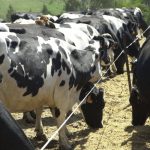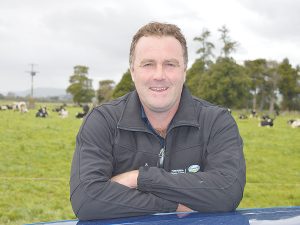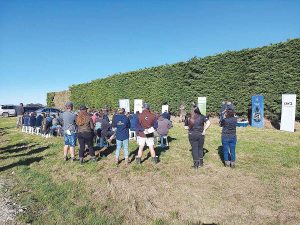
Manawatū teenager Jeremy Price, 19, is urging farmers to be more inclusive of workers with disorders after two seasons in the milking shed left him feeling neglected and exploited.
Price left school to become a dairy farmer about two years ago, but his dream is now in tatters as he eyes a career change.
Diagnosed with autism and attention deficit hyperactivity disorder, Price believes he is a normal teenager who is open about living with his conditions.
He disclosed these to employers and told them he required extra patience when it came to receiving instructions for technical aspects of farming, such as shifting fence lines and moving stock.
Despite his conditions, several farmers agreed to take him on because he was young, enthusiastic and qualified. He had completed machinery, farm systems and pasture and livestock courses with training services provider Land Based Training.
However, three farmers have enforced the 90-day rule against him, a provision allowing employers to dismiss new staff within the first 90 days of their employment without having to provide a reason or face legal action for unfair dismissal.
He said he was once sacked after he was bedridden for two weeks with cryptosporidium, caused by microscopic parasites passed in the stool of an infected cow.
On another farm, Price said he worked several 80-hour weeks because the farm didn’t enforce split shifts for morning and afternoon milking.
Price said some farmers were expecting to stumble upon a “diamond in the rough”, rather than offering comprehensive on-the-job training.
“A lot of my mates have had the same thing happen,” he said.
“Some of them have way too high expectations of you. They expect you to be on their level and they’ve been farming 20 years. But I’ve been here two years.”
Jasmine Worboys, 17, who also has attention deficit hyperactivity disorder, has struggled to find full-time employment in the sheep and dairy industries.
She has been shouted at and abused for not understanding instructions.
“It messes with your head. Mornings are the hardest time for people with ADHD. Our medication has worn off so I’m up at 4am just to take my pill so it works by milking at 5am,” she said.
“If someone yells at us, we’ll get emotional. We’ll get distracted… Having to take that pill everyday makes me ashamed of who I am.”
Tararua dairy farmer Murray Holdaway said the primary industries were among the most diverse in New Zealand’s workforce.
Large numbers of women were now in management roles and the industry employed thousands of immigrants. But dairy farming was becoming a more complex business.
Although there was a labour shortage, farmers made judgment calls when employing staff. It was important an applicant could work well in a team.
“Sometimes it is better to deal with a shortage of labour than to be continually dealing with problems that might come out of employing the wrong person,” Holdaway said.
Also the Manawatū dairy spokesman for Federated Farmers, Holdaway said farmers had a responsibility to conduct on-the-job training for young Kiwis entering the workforce.
“There is still a judgment call as to how much time and effort is needed to get the standard of work required.”
Support from industry training organisations was not at the level needed, he said. Some had a “bums on seats” approach – funded based on numbers and without much care for the standards achieved.
Workbridge chief executive Jonathan Mosen said the agricultural sector had a willingness to take on disabled people. But it was “just as prone” to disability discrimination as any other.
Some employers made assumptions because disabilities were not “something they know much about”.
“It may take someone a little longer to learn the ropes to begin with,” Mosen said.
“When assumptions are made, that’s difficult, because we can’t see inside people’s minds.”

























